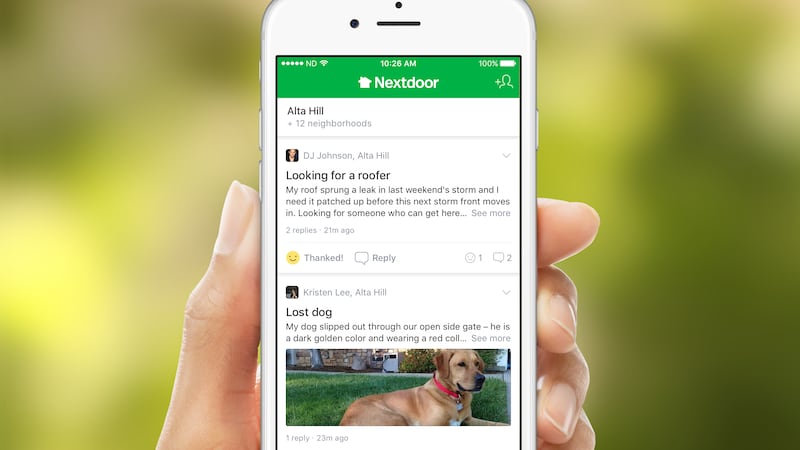Be careful what you post on Nextdoor—journalists might just use it, even if the practice violates site guidelines.
Questions about what can and can't be publicly posted from Nextdoor, a social network that functions much like an online neighborhood watch, are arising after WW quoted a Nextdoor user in a story Thursday.
And the site's administrators now warn that users who leak Nextdoor posts to reporters could be kicked off the site.
A Nextdoor user sent WW a quote from a Nextdoor post to use in a story about the owner of a neighborhood deli who was refusing to show NFL games because of players kneeling during the National Anthem in protest of police brutality.
Users questioned WW's rationale for quoting users on Nextdoor who did not give permission to be quoted. WW reporter Matthew Korfhage, who wrote the story with the Nextdoor quotes, replied:
"As a matter of general policy, we reprint information published in a public forum—which Next Door certainly is. If your friend did not want people to read her (very measured and respectful) complaint about the business, the first step would be to not post it publicly."
Last night, a Nextdoor user sent WW a screenshot of a post where a user wrote that he had spoken with Nextdoor admins, who confirmed that "supplying screenshots of pastes to a reporter for publication outside of Nextdoor is a violation of the Privacy Policy."

WW spoke with Nextdoor, who confirms, saying users who send reporters any screenshots or quotes from users on the site without their permission violate company policy.
"This is a private network, so we do have guidelines around that, and one of them is sharing information around reporters," Nextdoor communications manager Jen Burke says. "We wholeheartedly welcome reporters to use Nextdoor to source stories—you just have to be upfront and tell users if you want to quote them."
Nextdoor is public to anyone who lives in the neighborhood, but Nextdoor calls itself a "private network," because the conversations on the site can only be seen by members of that community.
When asked if that meant that users would be banned, Burke says they could be banned, but Nextdoor would likely try to educate the user first.
"A lot of the members need education," she says. "We're a private social network instead of a public one like Facebook or Twitter. A lot of people don't even know they're going against the guidelines if they're doing that."
The Nextdoor Privacy Policy calls the act, "a serious breach of trust," and indicates that violating the policy could lead to a "permanent ban."
Burke says that Nextdoor is currently working on a set of media guidelines because they've seen more reporters using the site as a source for stories.
